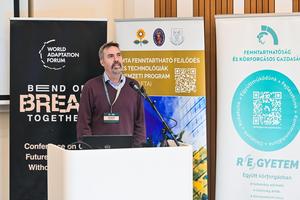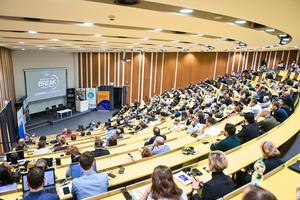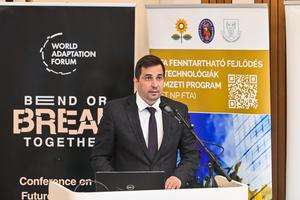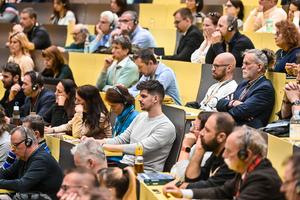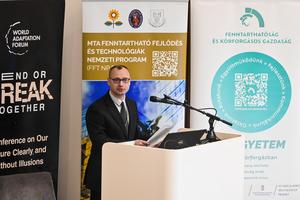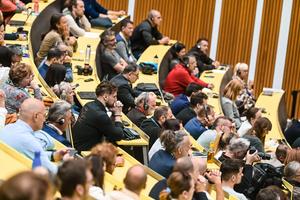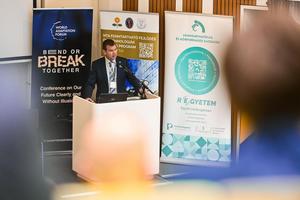Jem Bendell - professor emeritus of sustainable leadership, founder of the Deep Adaptation Forum - and our university hosted the Forum's upcoming event titled "Bend or Break Together" on April 19th. The movement's key ideas revolve around honest dialogue and conscious commitment. It was emphasised in the introduction that the Hungarian group is one of the most active. The author's new book, "Breaking Together: A Freedom-Loving Response to Collapse," was published.
The event, the first of its kind in Hungary, was opened by Gergely Deli, the rector of LUPS. Global societies are entering a crisis phase where the number of resources is decreasing, and their accessibility is deteriorating. Professor Jem Bendell points out the need to think in different scenarios, as collapses prompt establishing new structures. Instead of conflicts and rivalries, preparations should focus on generous, equality-based cooperation. "I believe that if there is a university that understands the importance of this complex preparation, it is LUPS: we train those in public service who will be able to respond to the changes," said the rector.
Lóránd Ujházi, the head of the Religion and Society Research Institute at the Eötvös József Research Center of the university, emphasised that the Catholic Church has become an advocate for environmental protection in recent times, partly because the protection of creation has long been one of the church's theological tasks. Pope Benedict XVI once said in a speech: If you want peace, then protect creation! - recalled Ujházi, adding that preserving the created world requires legal, organisational, and moral cooperation.
Jem Bendell began his lecture by stating that he had been part of the system for decades, and after facing it, he left the academic world and transitioned into a form of denial. He then created the concept of Deep Adaptation, making environmental sustainability the "purpose of his life." His 2018 book, "Deep Adaptation: A Map for Navigating Climate Tragedy," quickly sold out in huge numbers. He observed that people were asking what next: conversations started on the topic "something started." He talked about a two-year study related to his book, which revealed that since 2016, life quality has stagnated or declined globally. He emphasised that political violence and natural disasters have contributed to the crisis state of societies, and technology has not saved us. The quantity of essential metals is finite, and new, efficient management methods are not spreading dynamically enough. He pointed out: "If we recognize this, we can live more consciously and creatively, letting go of our accustomed, safe but failed systems."
Further details about the event can be found on the ludovika.hu portal.
Text: Lilla Kovács
Photo: Dénes Szilágyi
